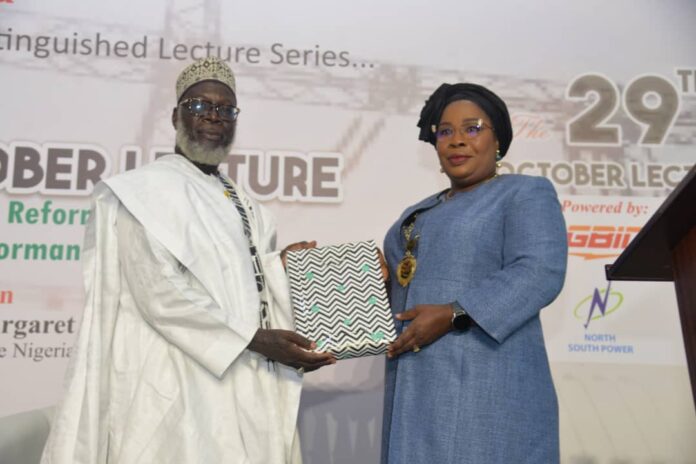The Nigerian Society of Engineers (NSE) has said that while reforms were ambitious and well designed, their execution is being hindered by poor implementation and lack of political-will.
The society declared that the solution to the power sector’s problems is near, as Nigeria possesses the technical know-how, yet lacks the listening ears of its government.
Engr. Tasiu Sa’ad Gidari-Wudil, immediate past president of NSE, highlighted this point at the 29th edition of the NSE October Lecture Series held on Friday in Abuja, where he delivered his keynote address.
“The solution is near, and we have the technical know-how in this country. Unfortunately, we don’t have the ears of the government. Until political leaders take technical advice seriously, the power sector will continue to struggle.
“The reforms were ambitious and well-designed, but poor execution and lack of political will slowed them down. The Electricity Act of 2023 offers fresh opportunities, but only faithful implementation will make a difference,” he said.
Gidari-Wudil who spoke on the lecture’s theme, “Evaluating Nigeria’s Power Sector Reforms: 2005–2023: A Quantitative Analysis of Technical Performance and Regulatory Impact,” lamented on the slow pace of progress in the sector despite nearly two decades reforms were introduced to liberalise Nigeria’s electricity market.
He said, “The sector has failed to deliver the promised transformation nearly two decades after liberalisation. If you ask whether there has been significant progress since 2005, the short answer is no. By now, we should have exceeded 30,000 megawatts, but due to political interference, regulatory lapses, and weak implementation, progress has been far below expectations,” said Gidari-Wudil.
He maintained that the sector continues to suffer from chronic outages, infrastructure decay, and economic sabotage, all of which remain serious barriers to national development.
He also identified gas supply constraints, transmission bottlenecks, and commercial inefficiencies as key weaknesses cutting across the entire electricity value chain.
“The problems are everywhere, generation, transmission, and distribution. Distribution companies in particular must curb rampant commercial and collection losses, which remain the bane of electricity supply in Nigeria,” he stated.
Gidari-Wudil acknowledged that private sector participation has introduced some accountability but said mismanagement and consumer indiscipline still undermine progress.
“Mismanagement thrives when utilities are under government control, but even private operators have failed to instil accountability. Consumers also play a role, everyone wants free electricity, but no one dares to leave a petrol station without paying. Until we confront this culture, reforms will not succeed,” he argued.
Gidari-Wudil advocated cost-reflective tariffs, transparent subsidies, and stronger stakeholder engagement, stressing that NERC must improve service monitoring beyond feeders to individual customer meters through smart technologies.
He noted that Despite over $10 billion in post-privatisation investments, Nigerians still endure daily blackouts, frequent grid collapses, and unreliable service. “Transmission losses average 8 to 12 per cent, while distribution efficiency varies widely across the 11 DisCos, with collection rates sometimes as low as 30 per cent,” he added.
He called for the need for state regulators to learn from NERC’s 20 years of experience to avoid repeating past mistakes.
Earlier, the NSE President, Margaret Aina Oguntala, in her opening remarks, said the lecture was a platform for the society to articulate its position on national issues, bringing together engineers, policymakers, and industry experts for candid discourse.
She pledged that the NSE would escalate recommendations from the lecture to the government and continue engaging policymakers to ensure faithful implementation of reforms.
“We expect the government to take ownership of these recommendations and to involve Nigerian engineers in delivering practical, homegrown solutions. If that happens, as our guest of honour said, there will indeed be light,” she said.

